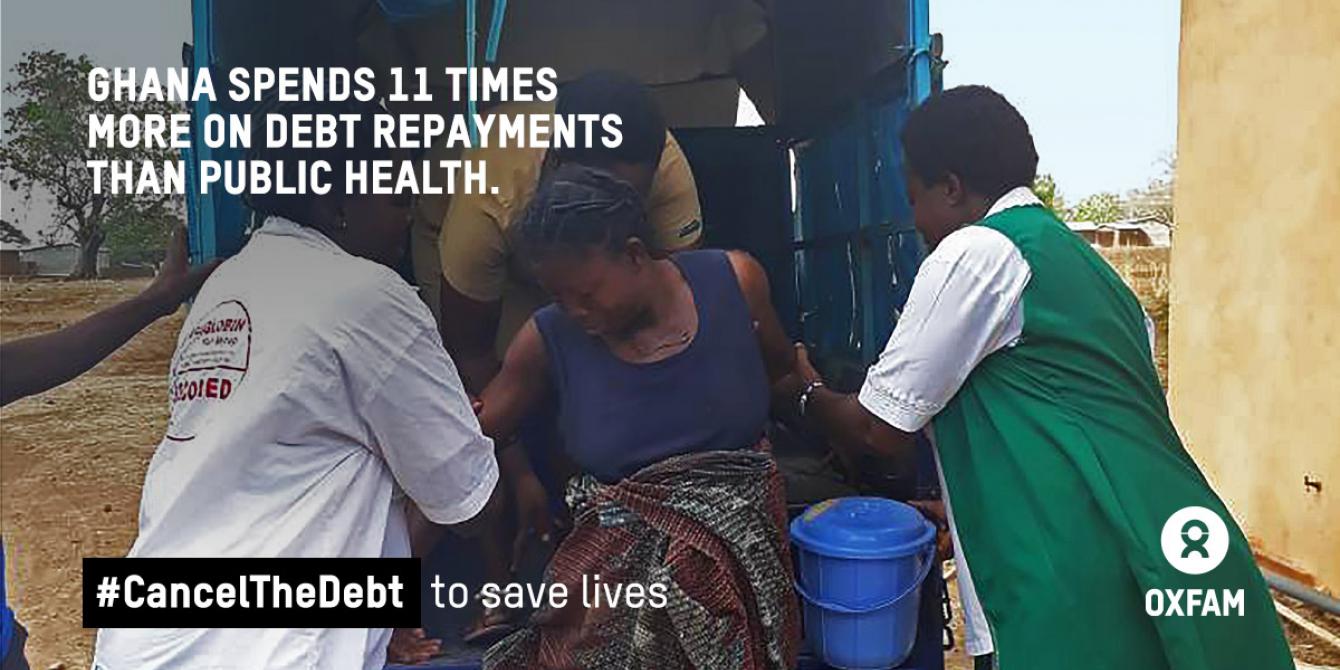Our response to the COVID-19

We call on world leaders to #CancelTheDebt in developing countries to fight the coronavirus.
The COVID-19 in West Africa
Follow the updates by country in our Oxfam Public Dashboard.
The West and Central Africa region faces a dramatic increase in numbers of infected COVID-19 related cases with the virus having spared no countries.
Most of these countries do not have a strong health system capable of supporting such a spread and will need urgent support. Oxfam is particularly concerned about the impact that this new coronavirus could have on vulnerable communities, especially displaced people and host communities who are already facing a humanitarian crisis.
Our teams are mobilized on the ground and are working around the clock to adapt our programs to ensure safe humanitarian access and protect the poorest and more vulnerable from COVID-19.
What is COVID-19?
Coronaviruses are a large family of viruses that are known to cause illnesses ranging from the common cold to more serious diseases such as severe acute respiratory syndrome ( SRAS) Covid-19 is a new strain of coronavirus that has not been previously identified in humans. The main source of the epidemic remains unknown, but given the history of other coronaviruses, it’s most likely that this virus has been transmitted from animals to humans.
How to reduce the risk of infections?
No matter where we are, it’s possible to minimize the risks by practicing good hygiene
- Wash your hands regularly with soap and water or an alcohol-based sanitizer
- Cover your mouth and nose with a tissue when coughing or sneezing, or cough and sneeze in the crook of your elbow.
- Avoid touching your eyes, nose, and mouth.
- Wash vegetables and other foods before eating them, avoid raw or undercooked food.
- Avoid using public transport if you have flu-like symptoms.
Oxfam's response to the COVID-19
Follow the updates by country in our Oxfam Public Dashboard.
Oxfam is a world expert in water, hygiene and sanitation and has solid expertise in public health.
Our Covid-19 preparedness plan draws on lessons learned from past epidemics, notably Ebola.
Oxfam’s expertise is making sure people have safe, clean water and toilets and making sure affected communities are listened to and are at the centre of prevention responses notably by adopting comprehensive barrier measures.
Our teams adapt on the ground, doing everything to protect the communities we support, increasing the distribution of soap, strengthening sanitation services, including facilities for hand washing, as well as access to drinking water especially for people living in countries that are already facing humanitarian crises.
5 million people are displaced in the Sahel region and in the Central African Republic.
In West Africa the mortality rate from insufficient access to drinking water and sanitation was already the highest in the world.
This crisis is also an inequality crisis in West Africa where governments are the least committed to reducing inequalities in the region. The impact of the virus is likely to be much worse for the most vulnerable people who risk losing their livelihoods and very lives.
We recommend strong social and economic measures to protect people impacted by the crisis.
In the Central African Republic and in Senegal for example, we are adapting our response to ensure vulnerable populations have access to the key information they need to minimize the transmission of the virus. We distribute hygiene kits to schools and health professionals, and food and cash transfers to households.
In the Central African Republic, Chad, and Burkina-Faso, Oxfam is developing a specific humanitarian response to deal with the pandemic and provide support to more than 400 000 vulnerable people through for example the construction or repair of 107 water pumps or boreholes in Burkina Faso for people who have fled the violence.
Help Oxfam save lives
Read how Oxfam fight COVID-19 throughout the world. We work with our partners on the ground to save lives and reduce risks. With your support, we are working to help those who have lost everything so that they can immediately receive necessities.

 Follow us on Facebook
Follow us on Facebook Our videos on YouTube
Our videos on YouTube Follow us on Twitter
Follow us on Twitter